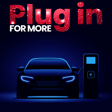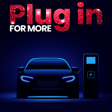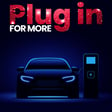
Revisiting: 5 EV Myths Debunked
Welcome to the Plug In For More podcast! Mike, Tom, and Bryant are here to help you on your journey to an Electric vehicle future. Each episode we discuss current events, trends, and a specific topic of education related to EV's. We bring together a diverse experience set, and pair it with guests who are experts in the field. For even more information on EV's, check out www.EVUniverse.com.
The guys discuss the impacts of the recent announcement of Ford and GM joining the Tesla Supercharging network. Also, They rebuke five common myths that are perpetuated with EV ownership.
Be sure to follow PIFM on our various social media platforms, for more exciting content on EV’s
Instagram: https://www.instagram.com/pifm_podcast/
Facebook: https://www.facebook.com/PIFMPodcast
YouTube: https://www.youtube.com/channel/UCqXpv3fnOcv-robjLbDINFQ/featured


